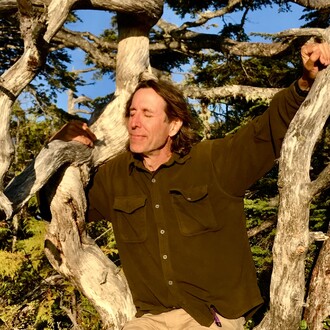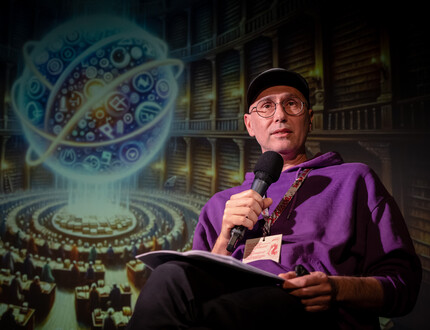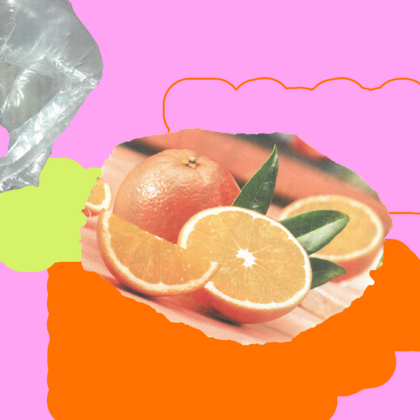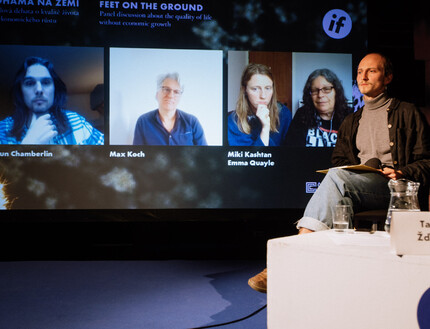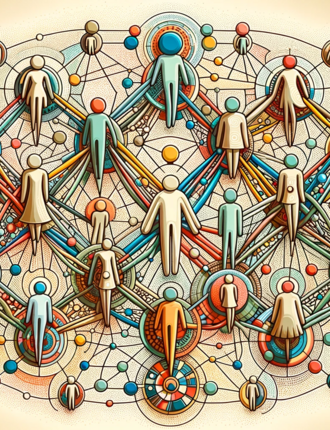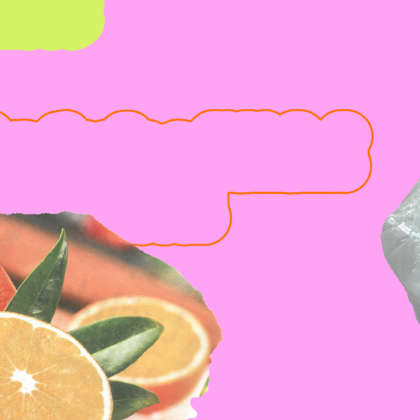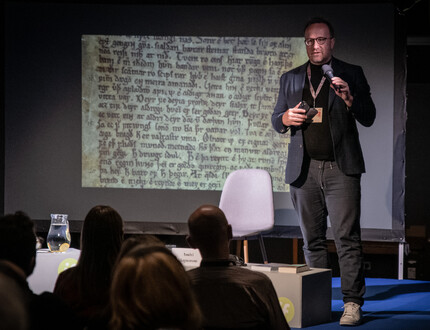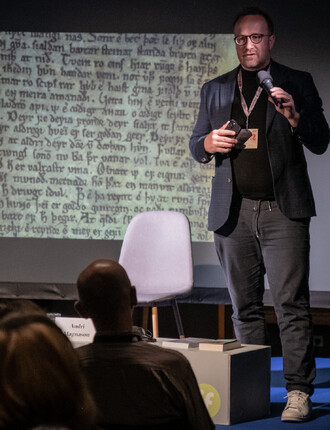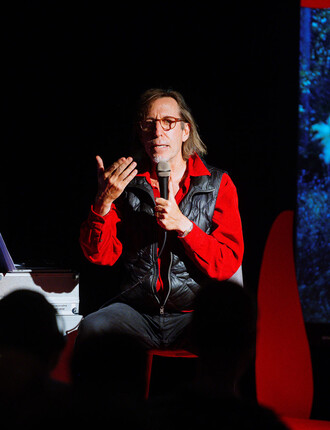I suppose that a desirable future would be any future in which the outrageous, many-voiced diversity and wild multiplicity of the Earth's uncountable species are still flourishing. A future in which snows still fall in the winters, thickening the glaciers that once again nestle atop mountains throughout even the warm seasons, wherein streams laced with salmon and trout still flow from the base of those glaciers, cascading down the thick-forested slopes and joining rivers that meander through valleys and towns and cities, their waters delicious and readily drinkable and unimpeded by over-large dams as they make their way to the broad ocean. An ocean abundant with fish, some solitary and some gliding in huge schools (and with octopus, and sea turtles, and pods of cetaceans) glinting among weirdly-shaped and many-hued corals. A future in which humankind has come to taste a new astonishment and dark wonder in the face of the wild earth, and so has come to practice a more humble style of presence within the land. This would entail a re-diversification within human culture itself – each human community aligning its economy, its architecture, its unique forms of power-generation, and its governance with the specific needs and rhythms of the particular bioregion (or ecosystem) that it inhabits, each human culture gradually becoming an expression of the more-than-human community of plants, animals, and landforms that surrounds and sustains it.
Of course, such a future is hopelessly far-fetched, merely a facile fantasy or daydream given the harsh realities of climate change and the inertia that keeps this commodity-drunk civilization from changing its course, and given the spasms of scapegoating, racism and violence that seem to accompany every new influx of climate refugees into previously prosperous lands. And yet we open ourselves to that more diverse and livable future whenever we reach out to help and offer sustenance to those who've been abused, to those who are strange and different from us, every time we act not just from our heads but also from our hearts, remembering our common identity as creatures of this breathing planet. In truth, it is likely that we will be unable to heal our horrific social injustices, unable to ease the fear-based rage and violence that plagues our species, until we collectively make alliance with the broad earth that underlies and surrounds us, allying ourselves with the trees and the forests that sustain our breath. Whenever we collectively fall-in-love-outward with the local earth – when we begin to work, side by side, on behalf of the soils and the waters and the wider, more-than-human community – it greatly eases the pressure within the human collective, fluidifying the brittle relationships that we sustain with one another. It should be increasingly evident that we will never be able to sustain our sanity, nor our humanity, in a purely human-made world. We are human only in contact, and conviviality, with what is not human.
September 22, 2021
The text was originally published in the 2021 Ji.hlava IDFF festival book.
Reflection on Desirable Future and Our Role in It
David Abram
